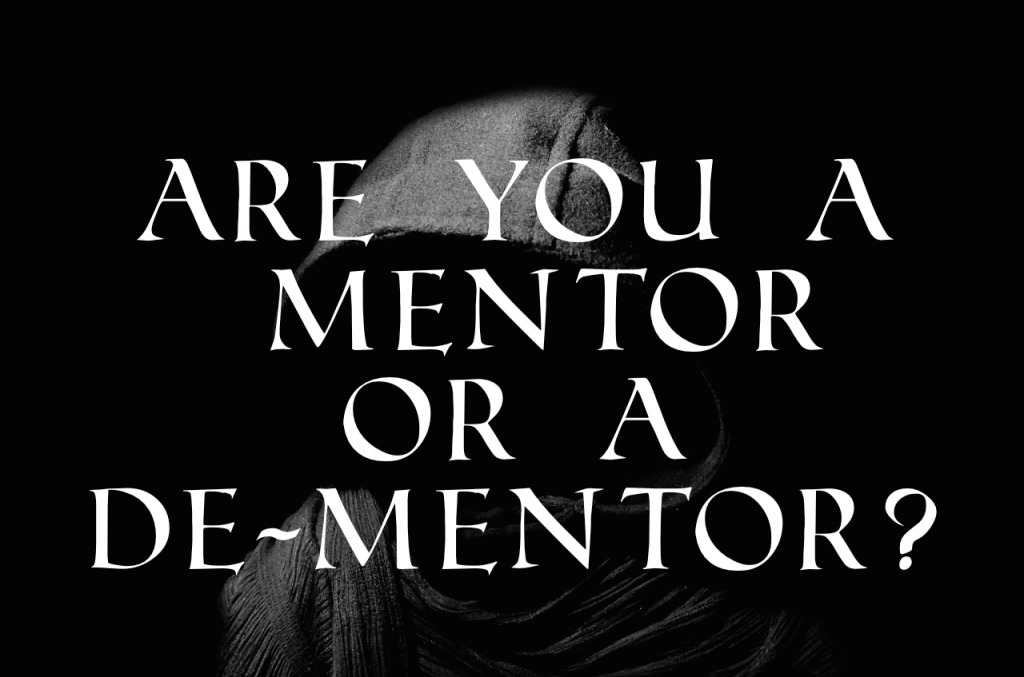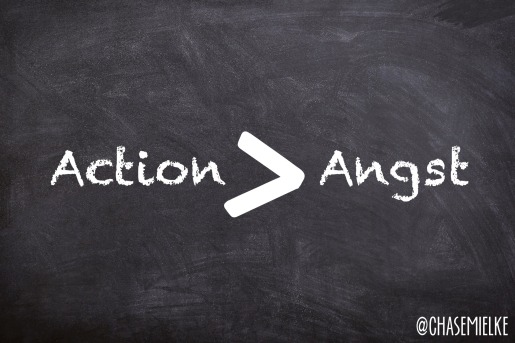There is no shortage of articles and musings on the issue of teacher burnout. Why can’t we gain and retain quality teachers? Low pay. Little respect. Testing. Classes wrought with internal and external malaise: apathetic students, dated facilities, finger-wagging parents, administrators, and legislatures all getting speared with blame.
I can attest to many of these factors affecting my feelings of burnout. I can name the moments when parents and students, laws and administrative flaws weighed on me. But, I’ve experienced a burnout factor we don’t talk about much in education – a factor that has probably drained me as much or more than the others. We often don’t talk about, don’t confront, don’t address our own negativity.
In what way are our actions helping or hurting the profession and our fellow professionals?
In what ways have we shifted from being supportive mentors who coach each other to caustic de-mentors who suck the optimism, the joy, the ambition from everyone around us?
I am convinced that no teacher goes into the classroom bound to be cynical, pessimistic, and caustic. I do believe that the many adversities of education can erode optimism and resilience.
The challenges of education are like a whetting stone: They can refine us and make us sharper or they can wear us down until we are blunt and useless.
I’ve experienced this myself.
When I first started teaching, I was the epitome of the wide-eyed, bushy tailed educator. It wasn’t just the youthful energy – I had excessive optimism that every lesson could be life changing and I could change every life. But the realities and adversities of teaching sharpened me quickly. Soon, I moved from eternally optimistic to strategically optimistic – I still saw opportunity and potential in every student but had to be more patient, more honest, and more considerate of what that looked like.
But the whetting continued to a more debilitating degree. It was no longer just the challenges managing students and emotions and time. It was the cynicism from fellow adults – negativity toward students, toward fellow colleagues, toward me personally, and toward the profession as a whole.
Instead of feeling surrounded by an order of resilient wizards fighting against the dark arts, I felt alone and paranoid that a de-mentor awaited me at every corner, every staff meeting, every collegial conversation.
And I own it: Last year, I became a de-mentor too. I felt myself quipping negativity to my colleagues, reinforcing fatalism in frustrating situations, and sometimes checking out entirely from staff meetings.
I had drifted from my values.
Teaching is hard. But, we can’t let difficult work environments be an excuse or justification for de-mentor cynicism. We can’t improve work environments by letting negativity drain the energy from ourselves and our colleagues. We have to own it when our cautious critical thinking has drifted to the dark side of despair.
Therefore, I’m not going to just be cynical about cynics. Instead, I have a plan to move forward this year – to resharpen my ebullience. To defeat de-mentors, a wizard must:
(1.) Know what de-mentor behaviors look and sound like;
(2.) Know what to do to avoid or minimize de-mentor behaviors in others;
(3.) Know how to reduce de-mentor tendencies in oneself.
Below is my personal plan for identifying and fighting the de-mentors that deteriorate the profession of teaching.
De-mentor #1: Defensiveness
|
Identify it |
Address it in others |
Address it in myself |
| Cross-complaining
ex: They tell us all the time to not lecture so much but then all they do is lecture to us at staff meetings Excuse making ex: I can’t help my kids be better readers if their parents don’t value education. |
Encourage action
ex: That’s a fair point. Have you shared that feedback with them yet? ex: What can we do to influence that? Empathy + Support I’ve been frustrated by that too. I’m thinking about getting some tips from Brian because he’s good at parent engagement. Want to join? |
Flip the “buts” to “yets”
Rather than, “I’d spend more time one-on-one with my students but I don’t have enough time” reframe: “I don’t have enough time right now to meet with each student, yet I’ve been able to free up time in the past by changing the tasks I give them to practice.” Own my influence I cannot force change upon every issue, but I can always influence. Figure out what is within my control and make that my focus. |
De-mentor #2: Cynicism
|
Identify it |
Address it in others |
Address it in myself |
| Unchecked Pessimism
ex: I can give you ten reasons why this schedule change is going to be a disaster. |
Acknowledge obstacles as valuable when paired with action
ex: You’ve pointed out a lot of challenges that I don’t think we should ignore. What are your ideas for overcoming or avoiding some of them? |
Make it a process
If I’m feeling overwhelmed by challenges of a situation, write out the challenges and then brainstorm solutions to each. |
| Stereotyping
ex: That kid is a loser |
Call it out
ex: Dang. I’m surprised to hear you stereotype someone that harshly. |
Broaden my lens
Every human is complex. Every time I have decided to learn more about the whole of a student, I’ve realized my stereotypes are unfounded. |
| Negative Gossip
ex: Did you hear about [teacher’s] lesson? I think it was so inappropriate for her to share so much of her personal life with her students… |
Encourage action*
ex: It sounds like that bothers you. Have you talked to her about it to find out more and let her know how you feel? |
Shut my mouth
Has negative gossip ever actually improved my life or the life of others? |
*Are you noticing a theme of “action” instead of “angst”?
De-mentor #3: Fatalism
|
Identify it |
Address it in others |
Address it in myself |
| Pre-emptive quitting
ex: What’s the point? In a few years they are just going to switch it to a whole new system. |
Bring it back to the present
ex: You’re probably right, but we all know that education will constantly be changing. So, what can we at least do now to be effective with our current situation? |
Go it alone for a while
If the situation allows, take ownership of my own actions and do what I need to do. Form forward-moving tribes The fatalism of the few isn’t always the voice of the majority. Many others are motivated to act. |
There is one form of quitting that I will embody this year: Giving up on giving in. I’m done letting every collegial conversation drift into thirty reasons why nothing we do matters, why every initiative is a manipulative administrative ploy, why we can’t XYZ or ABC.
We can’t ignore the fact that our profession has de-mentors – that we might sometimes be the de-mentors. But we also can’t ignore the fact that our profession is teeming with an order of educators who look for opportunities, fight for change, and work from a place of joy, passion, and perseverance.
To anyone and everyone who is still interested in fighting the good fight, I lift my Butterbeer to you.
Cheers to making this year your best yet.



2 responses to “Are you a mentor or a de-mentor?”
This is such an important post.
Amazing post! I am not a teacher but a parent who has volunteered for 10 years in the same school. In that 10 years our school is on its 5 th different principal, 8 or 9 th vice principal, The parent teacher Association has fought with the school board over various issues and sadly there is a lot of negativity and frustration. At the PTA meetings people get stuck on past issues instead of moving forward with what can be done. I am going to keep your article with me and when someone has a negative thought , I’m going to encourage them with positive thoughts and possible ways to move forward. Other parents also ask me why I hand out little notes to teachers , secretaries, Custodians and administrators throughout the year. I tell the parents that all these people are playing an important role in our children’s lives and can get criticized from all sides and that I want to remind them of how the many seemingly small things they do everyday can make a big wonderful and lasting impact on the children they are teaching. If I can help make a staff member feel valued and appreciated that feel good feeling will trickle down to the students and help the whole school atmosphere as well!
Thank you for your article, hopefully I have a way to encourage the nay sayers now too!